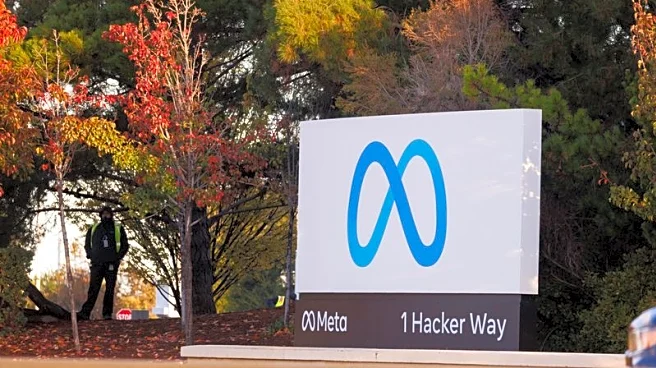What's Happening?
The COP30 climate summit in Belém, Brazil, is currently underway, focusing on global efforts to transition away from fossil fuels. The summit features discussions on decarbonizing industry and transport, maturing carbon markets, and addressing trade challenges.
A significant theme is climate finance, with the UN estimating a need for $4.2 trillion annually to achieve Sustainable Development Goals, including $1.8 trillion specifically for climate-related outcomes. The Green Finance Institute, established by the UK Government and the City of London Corporation, is actively participating, aiming to catalyze private finance for the low-carbon transition. The presence of thousands of fossil fuel lobbyists at the summit has raised concerns about their influence on negotiations.
Why It's Important?
The COP30 summit is crucial for setting global climate policy and financial commitments necessary to combat climate change. The discussions on transitioning away from fossil fuels are vital as they directly impact industries reliant on coal, oil, and natural gas. The involvement of the Green Finance Institute highlights the importance of private finance in achieving climate goals. However, the presence of fossil fuel lobbyists could potentially hinder progress, affecting the pace of transition and the implementation of sustainable practices. The outcomes of these negotiations will have significant implications for global climate strategies and the future of energy industries.
What's Next?
The COP30 summit is scheduled to continue until November 21, with ongoing negotiations expected to address the roadmap for fossil fuel transition and climate finance agreements. Stakeholders, including governments and financial institutions, will likely continue to debate the specifics of funding and implementation strategies. The influence of fossil fuel lobbyists may lead to contentious discussions, potentially impacting the final agreements. The summit's outcomes will be closely watched by environmental groups and industries worldwide, as they will shape future climate policies and economic strategies.
Beyond the Headlines
The ethical implications of fossil fuel lobbyists' presence at COP30 raise questions about the integrity of climate negotiations. Their influence could undermine efforts to achieve meaningful progress in reducing emissions and transitioning to renewable energy sources. Additionally, the financial commitments discussed at the summit highlight the disparity between developed and developing nations in accessing resources for climate action. Long-term shifts in global energy policies and economic structures may be triggered by the agreements reached at COP30.
















